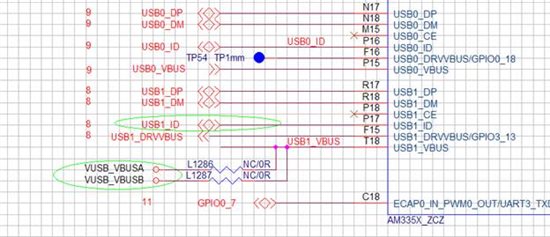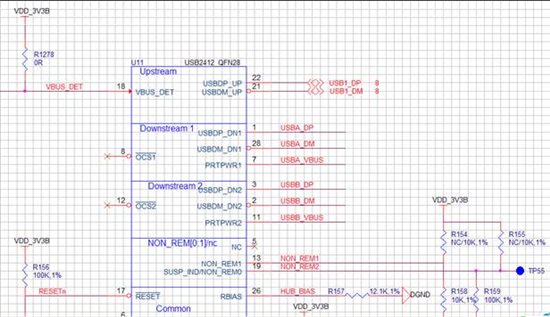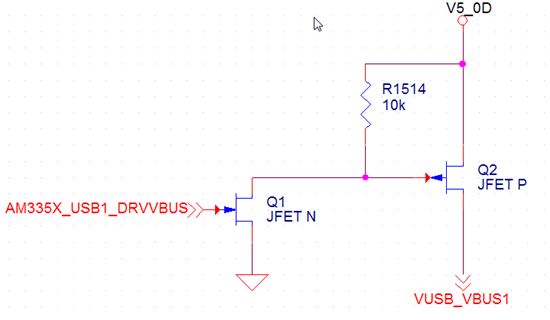I want to implement USB host ports using a USB Hub on a custom board I am designing using AM3352. I am using USB2412 and TPS 2052.
I have made almost all the connections for USB2412 as per its eval board and taking reference from Beaglebone. Now for Host operation, USB_ID pin is grounded. USB_DP and USB_DM from processor are at upstream of usb hub and at downstream ports are two USB A connectors. VBUS signals for downstream ports has been provided from TPS2052.
Now the problem that I am facing is how to configure or connect USB_DRVVBUS pin on processor ?? I cannot leave it NC because the schematics checklist that it should be connected to Enable of Power distribution switch. But, that Enable is already controlled by pins from respective downstream ports in USB HUB. So How do i use USB_DRVVBUS , because it will control the USB_VBUS from processor, which I have used to enable the USB HUB itself.
Pulling Up USB_DRVVBUS seems to be the only possible solution. Please help me resolve this problem.






